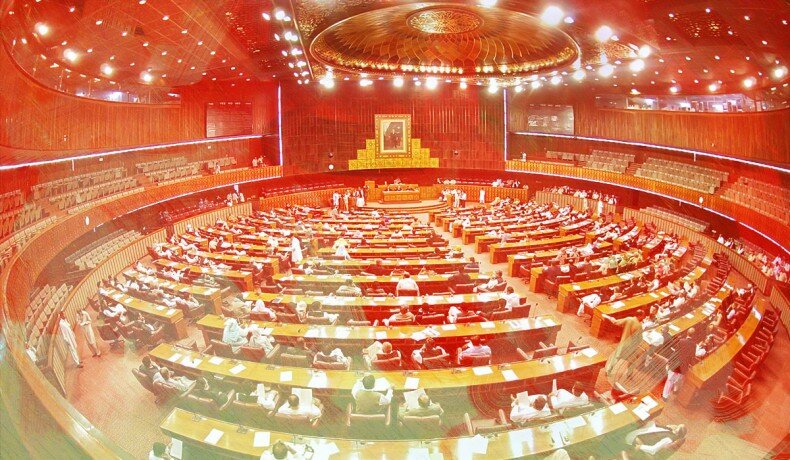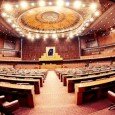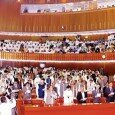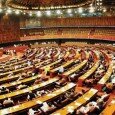By Q. Zaman –
Parliamentary oversight is still a distant dream
Parliamentary committees are one of the most important mechanisms by which legislatures hold state institutions accountable, question executive policies, investigate issues of public concern and examine bills referred to them by the House and submit reports along with suggestions on certain legislation or recommendations.
But the case in Pakistan is seemingly different.
“The standing committees in our country are individual driven,” said Pakistan Institute of Legislative Development and Transparency (PILDAT) President Ahmed Bilal Mehboob. While explaining his argument, Mehboob said that the performance of standing committees, at present, depends on the chairperson of standing committees. Only those committees, whose chairpersons are proactive, are working efficiently while others remain virtually dysfunctional, he added.
Mehboob quoted the example of Senate Standing Committee of Defence headed by Senator Muhahid Hussain Syed as the robust parliamentary panel. He mentioned National Assembly Standing Committee on Foreign Relations, during past regime, headed by Awami National Party (ANP) chief Asfandyar Wali and said the committee had only a few meetings due to non-availability of its chairperson.
Responding to a question, Mehboob said that nomination of committee members and its chairman is based on political considerations instead of aptitude.
At present there are 30 standing committees of the National Assembly comprising, on an average, 20 members. There are six non-ministerial standing committees including the Business Advisory Committee, Finance Committee of the National Assembly Secretariat and the committees on Government Assurances, House and Library, Public Accounts and Rules of Procedures and Privileges.
Virtually, every member of 342-member house is member of one standing committee or more. When it comes to heads of the standing committees, 18 are headed by the ruling Pakistan Muslim League-Nawaz (PML-N), four by Pakistan People’s Party (PPP), three by Pakistan Tehreek-e-Insaaf (PTI) who have resigned from assemblies, two by Muttahida Qaumi Movement (MQM) and one each by JUI-F, PMAP and PML-Q.
Talking about the performance, finance bill is one of the most important thing which should go to standing committees for further deliberations, however, it does not happen. “Standing committees are powerless in terms of budget making,” he added. Mehboob referred to Indian Parliament where Budget session last for 75 days and said budget session in our parliament was just a “formality.”
Though there is question mark on committees’ performance, there is a silver lining. “Things have improved as compared to past,” Mehboob said while referring to past practice in which government members used to head all the standing committees. He said that having head of Public Accounts Committee [PAC] from the opposition, after the 18th Constitutional amendment, is a welcome move.
Responding to a question about way forward, Mehboob said that there should be dedicated staff for the standing committees who would provide research support to the committees. According to the rules every bill goes to relevant standing committee and government has so far introduced 27 bills whereas members in their personal capacity, have introduced 56 bills known as private member bills. The National Assembly has so far passed 17 bills.
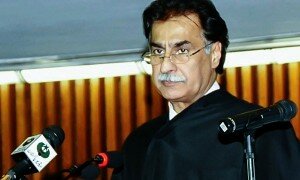 As members of the committee were seen often complaining about the non-seriousness of the government ministers for not turning up in the meetings, which were held on the expense of national exchequer, Senate Chairman has given a novel idea of joint parliamentary committees comprising members from both the houses. However, the proposal was rejected by Speaker National Assembly Sardar Ayaz Sadiq.
As members of the committee were seen often complaining about the non-seriousness of the government ministers for not turning up in the meetings, which were held on the expense of national exchequer, Senate Chairman has given a novel idea of joint parliamentary committees comprising members from both the houses. However, the proposal was rejected by Speaker National Assembly Sardar Ayaz Sadiq.
“The standing committee on finance has met only for five times in last two years,” said Dr. Nafisa Shah who is representing her PPP in that committee. This is not the end, “out of those five meetings irrelevant agenda was taken up in three meetings,” she added.
The PPP lawmaker said committee on finance is one of the most important committees and it should be meeting every two week. “A lot of things have happened in finance in these two years which we should have scrutinized, evaluated and given recommendations. But none of this happened as finance ministry does not want to come down to level of committees which is very unfortunate,” she said.
Responding to a question, Shah said that opposition as well as members from treasury benches have voiced their concerns about the absence of minister and secretary. In order to substantiate her point, she referred to a meeting and said we had a session on macro-economic indicators as per the budgetary target and how do they stand today and an additional secretary to give us presentation. All of us had excellent recommendations but what can an additional secretary do when it comes to policy [who has got no powers], she questioned.
Dr. Shah said that the government itself is non-transparent and there is lot of secrecy around it and its response in standing committees including officials and ministers is not very satisfactory.
Responding to a question, she said that “I don’t want to doubt the intention as the Speaker is trying hard and many of the chairmen wanted to be more effective but the government’s response is poor.”
The writer is a journalist based in Islamabad





















































































